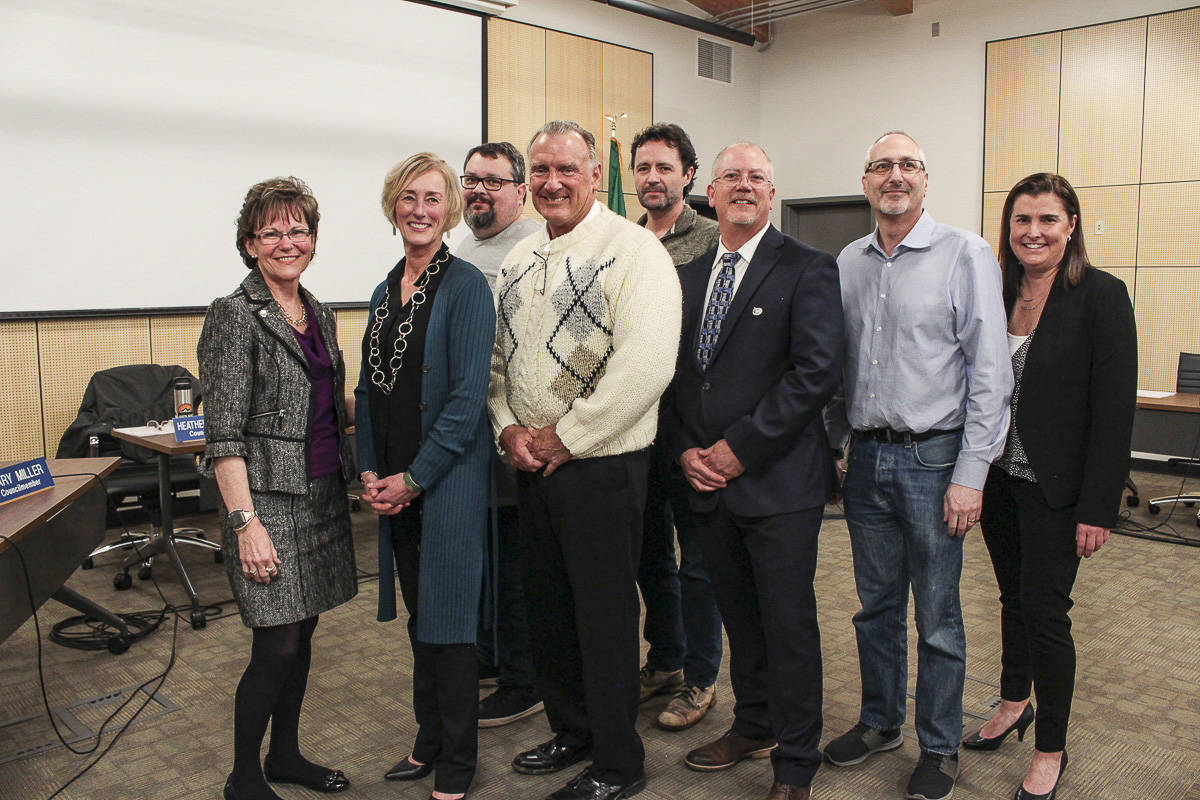North Bend is considering enacting water conservation measures to help reduce use during peak demand months. The ordinance would apply to all customers in the city, including those on city water and those served by the Sallal Water Association.
It lays out a number of restrictions on water use. They would be enforced by a scaling response from the city, and city customers could face up to $100 a day in fines for noncompliance. Water service could also be shut off for violators.
Water conservation would be implemented in stages. The first would automatically occur on Aug. 15 of each year. Water runoff from a customer’s property to adjoining property, including onto roads or ditches, would be prohibited. Further, all hoses are required to have automatic shut-off devices for all uses like watering lawns, washing cars or watering animal troughs.
All pools, spas and fountains must have recirculating pumps and be leak proof. Pools will only be drained and refilled for health or maintenance reasons.
However, residents can water their lawns at any time of day.
The second stage kicks in when water levels at the city’s reserve reach a certain level to be determined by the city. On top of the previous restrictions, it limits most landscape and pasture irrigation to a maximum of three days per week. Drip irrigation will be allowed on any day. Residents with odd numbered street addresses will irrigate on Tuesdays, Thursdays and Saturdays while those with even address will irrigate on Wednesdays, Fridays and Sundays.
Additionally, washing of streets, driveways, sidewalks and other similar surfaces are prohibited, other than for health, sanitation or fire protection.
Under this tier, restaurants will only serve water when requested.
The third and final tier is the most restrictive. It would allow watering laws and irrigation on one day a week. No city water would be used to drain or refill pools, artificial ponds or streams and no new permits would be issued for these uses.
Residents would be required to wash cars or equipment on a lawn or at a car wash that uses recycled or reclaimed water.
The ordinance underwent a first reading at the May 5 North Bend City Council meeting, and if approved at a future date, could go into effect this summer.
North Bend has struggled in recent years to meet the conditions imposed by the state for Centennial Well, it’s newest and largest. While the well can supply enough water for the city, it is required to have a secondary mitigation source. This is used to pump water back into the Snoqualmie River – where Centennial Well draws from – during dry times of the year.
This backup supply would come from the Sallal Water District, a neighboring utility that has wells south of the city. Sallal’s water comes in part from a portion of Chester Morse lake known as the Masonry Pool. When levels in this pool hit certain levels, during August, September and October, it would trigger the conservation levels outlined in North Bend’s ordinance.


